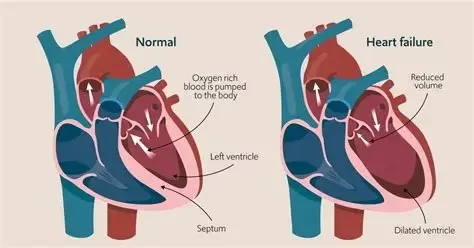- symptoms‑overview‑congestive‑heart‑failure
- stages‑definition‑CHF
- diagnosis‑and‑testing‑tools
- treatment‑medications‑lifestyle
- patient‑cases‑real‑stories
- ongoing‑management‑recommendations
1. Understanding Congestive Heart Failure Symptoms in Daily Life
Congestive heart failure symptoms can start subtle and gradually interfere with everyday activities. At first, fatigue and shortness of breath during mild exertion may seem like simple overwork. But as the condition develops, individuals often experience persistent coughing, fluid retention showing as swelling in ankles or abdomen, and unexpected weight gain. Explaining these symptoms clearly helps readers recognize early warning signs. Some people describe feeling breathless while climbing a single flight of stairs, or awakening at night gasping for air—classic signs of fluid backing up in the lungs due to reduced heart pumping function.

2. Exploring the Four Heart Failure Stages
The stages of congestive heart failure offer a structured roadmap for understanding progression. Stage A includes individuals at risk due to conditions like hypertension or diabetes but with no structural heart damage. Stage B involves evidence of structural heart changes without symptoms. Stage C is characterized by active symptoms such as shortness of breath or fluid retention. Stage D represents advanced heart failure where symptoms persist despite optimal therapy. Describing each stage with clear examples helps readers understand their medical status and plan next steps, reflecting how the guide covers the full journey from early risk factors to advanced disease.
Atlanta Heart Specialists
atlanta heart specialists
4375 Johns Creek Pkwy #350, Suwanee, GA 30024, USA

3. Diagnostic Approaches and Tools Used in CHF Evaluation
Accurate diagnosis of congestive heart failure requires combining patient-reported symptoms with key medical tests. Echocardiograms measure ejection fraction to evaluate pumping efficiency. Blood markers like B‑type natriuretic peptide (BNP) reflect fluid strain. Chest X‑rays reveal fluid buildup in lungs. Electrocardiograms detect arrhythmias. Using these tools jointly, healthcare providers place the patient into a proper stage and select suitable treatment options. Medical professionals often integrate imaging and lab results with physical signs like elevated jugular venous pressure or lung crackles to confirm congestive heart failure and track its progression.
4. Treatment Options: Medications, Lifestyle Changes, and Advanced Therapies
Treatment options for congestive heart failure range from medication regimens to lifestyle strategies and advanced interventions. First-line medications include ACE inhibitors or ARBs, beta-blockers, diuretics, and aldosterone antagonists to relieve fluid and lower strain on the heart. Lifestyle modifications—such as sodium restriction, daily weight monitoring, and gentle exercise—play a major role in improving quality of life. In advanced cases, devices like implantable cardioverter-defibrillators (ICDs), cardiac resynchronization therapy, or even heart transplant may be recommended. This section provides actionable guidance for choosing between treatment options based on stage and patient needs.
5. Real-Life Examples: Patients’ Journeys Through CHF Treatment
Human stories bring credibility and understanding to congestive heart failure stages and treatment options. One patient in Stage B recounts being diagnosed accidentally during a routine exam and preventing progression by managing blood pressure and lifestyle; after two years, symptoms never developed. Another patient in Stage C described dramatic relief after combining medication with structured cardiac rehabilitation—swollen ankles and fatigue vanished within months. Sharing such stories gives hope and illustrates how following treatment options adapted to each stage can change outcomes.
6. Managing CHF Long-Term: Tips, Monitoring, and When to Seek Help
Long-term management of congestive heart failure requires disciplined monitoring and frequent adjustments. Patients should record daily weight and fluid intake, track symptoms like increased breathlessness, and stay vigilant for signs of fluid overload. Regular follow-up appointments, lab tests, and echo evaluations ensure treatment remains effective. Partnering with a cardiology team and seeking education—such as resources from HeartCare Hub—empowers patients to select personalized treatment options and maintain stability. Clear advice on when to contact a provider—for example, sudden weight gain or worsening shortness of breath—helps prevent hospitalizations.






















Deborah Heart and Lung Center
deborah heart and lung center
200 Trenton Rd, Browns Mills, NJ 08015, USA